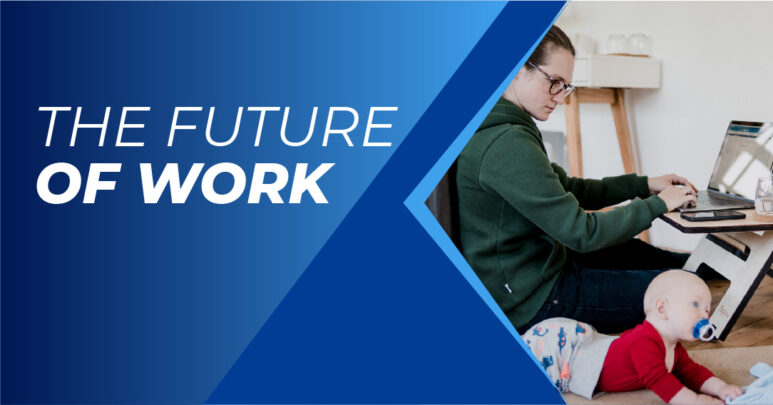By Philippe Riboton, Managing Director at HR Partners International Executive Search
Home is where the heart is they say. But nowadays home is also where work is. If you are among the millions of executives whose professional life has been turned upside down because of COVID-19, chances are you may wonder how the future of your work will look like. You might especially wonder if the new buzzword of “hybrid working” will apply to you and will be your “new normal”.
The concept of working from home might be appealing for those whose home allows them to work comfortably. But the reality of homeworking for many has not been that alluring as they found themselves spending their entire day on conference calls staring at their screen while being trapped in small spaces which have never been designed to become work stations. Indeed the charm of endless zooming from the kitchen or the dining room has vanished and has changed our previous understanding about home office and work/life balance. Some even confess they are literally dreaming of going back to the good old nine to five kind of day.
So is it really the end of office work as we know it? How and where will we work in the future?
The future of working might actually land in this grey zone which is now commonly called “hybrid working”, meaning somewhere between 100% office-based and 100% remote. But what will hybrid working actually look like? What will be the implications in terms of organization models for companies? Will everyone come to the office half the time or only half of the people show up to the office for a day or two? What will be the outcome in terms of creativity, productivity, motivation or collaborative work style? In other words will it be more effective for employers and employees?
A recent survey conducted by Zurich insurance across its 4,500 UK workforce may give us an indication on future trends. 59% of the Zurich insurance employees interviewed for that survey said they would prefer to spend more than half their working week at home. Of this percentage a third only want to come into the office for one day a week. On the other hand one in four staff members said they wanted to mainly work in the office. It is worth to note that only 7% of the company’s UK workers currently work full-time from home – but the survey shows a further 33% say they would like to do that for most of the working week.
Zurich insurance HR director for the UK Steven Collinson commented on the survey in a September article in “This is Wiltshire”: “our research has shown that not everyone wants to work from home five days a week forever”, he said. “In effect they want the best of all worlds.”
The best of all worlds might not be an easy thing to organize for companies who witness a massive mindset shift from their employees as a consequence of COVID-19 in the form of a new imperative for flexibility.
Another survey conducted in September of this year by the publication Management Today with a panel of 280 leaders and senior decision makers in UK companies gives us an indication of how the hybrid model is working for them but also illustrates the magnitude of the headache in terms of future organization model for most companies. Take one example: according to that survey most respondents expect their average office occupancy attendance to be between 20% and 60% once the pandemic is over. As a result a third of respondents say they are already considering reducing their office real estate footprint.
So the question is not only about how often we will go to the office, it’s also about where our office will be in the future. Some say companies central headquarters will slowly transform into smaller hub offices where people will come two or three days a week. Others say downtown offices will be progressively replaced by networks of smaller regional locations.
One thing is for sure: COVID-19 is challenging entirely what the future of office work will look like. “Before COVID we all came to the office because we came to the office”, says Kevin Ellis, chairman of consulting firm PwC for the UK and the Middle East as quoted in the Management Today article. “But thanks to the pandemic many people have come to regard home, not the office, as their default work location. So people are thinking they are only going to come into the office if the office is going to do something for them.”
In other words it opens the fundamental question of what the office is really for.
Mark Zuckerberg clearly illustrates how COVID-19 – whether we beat it or not – will redefine work. Zuckerberg says he can imagine that in five or ten years time half of Facebook’s staff will simply never set foot in a physical workspace.

